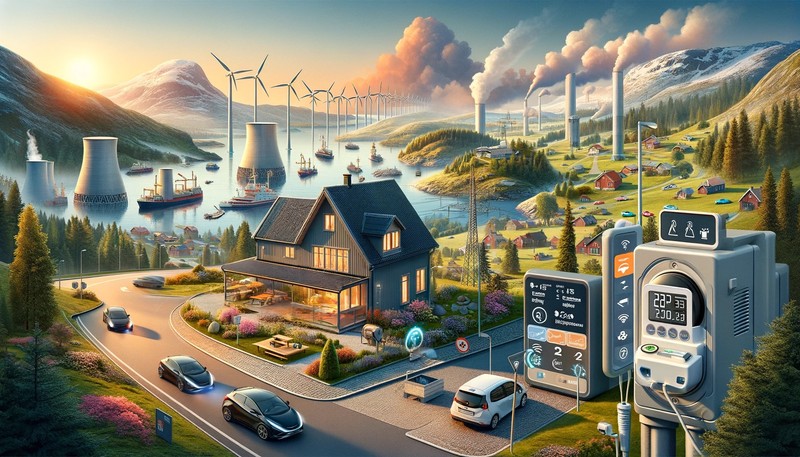Electricity market in NO2 (South) zone of Norway
Overview of Norway's electricity price zones
The electricity market in Norway is segmented into five price zones, each serving a distinct geographical area. The NO2 zone, located in the southern part of Norway, is one of these zones. It includes the city of Kristiansand, which is the largest city in the region and a significant hub for commerce and culture.
Smart metering in NO2 zone
Adhering to EU regulations, Norway has implemented smart metering across all regions, including the NO2 zone. These smart meters offer advanced capabilities in monitoring and managing electricity usage. They provide hourly data on electricity consumption, allowing households to track their energy usage more effectively.
This technological advancement is particularly beneficial in the NO2 zone, where electricity consumption varies due to seasonal changes. The smart meters enable residents to adjust their usage according to real-time data, leading to more efficient energy consumption and potentially lower costs.

Energy production in southern Norway
In the NO2 zone, energy production is characterized by a blend of renewable sources. While hydroelectric power remains a major contributor, the region also utilizes other forms of renewable energy. These efforts align with Norway's commitment to reducing its carbon footprint and promoting sustainable energy practices.
Being in the southern part of Norway, the NO2 zone benefits from more diverse climatic conditions, allowing for the exploration of alternative renewable energy sources. This diversification strengthens the region's energy resilience and sustainability.
Adoption of electric vehicles (EVs) in Kristiansand and surrounding areas
The NO2 zone, particularly around Kristiansand, is actively participating in Norway's drive towards electric vehicle adoption. This initiative is supported by extensive charging infrastructure and government incentives. The increased use of electric vehicles in this region is a testament to Norway's leadership in sustainable transportation.
This trend is not only environmentally significant but also reshapes the local energy market. The growing number of electric vehicles increases the demand for electricity, influencing the dynamics of energy supply and consumption in the region.
The NO2 zone's role in the EU electricity market
Despite its geographical location, the NO2 zone plays an integral role in the broader European electricity market. Through interconnectors, this region contributes to the transnational exchange of electricity. This connectivity allows for the export of surplus renewable energy and the import of additional power when needed.
The strategic position of the NO2 zone, especially its proximity to other European countries, enhances its role in this cross-border energy exchange. This integration is crucial for maintaining energy balance and stability, not just in Norway but across the European continent.
